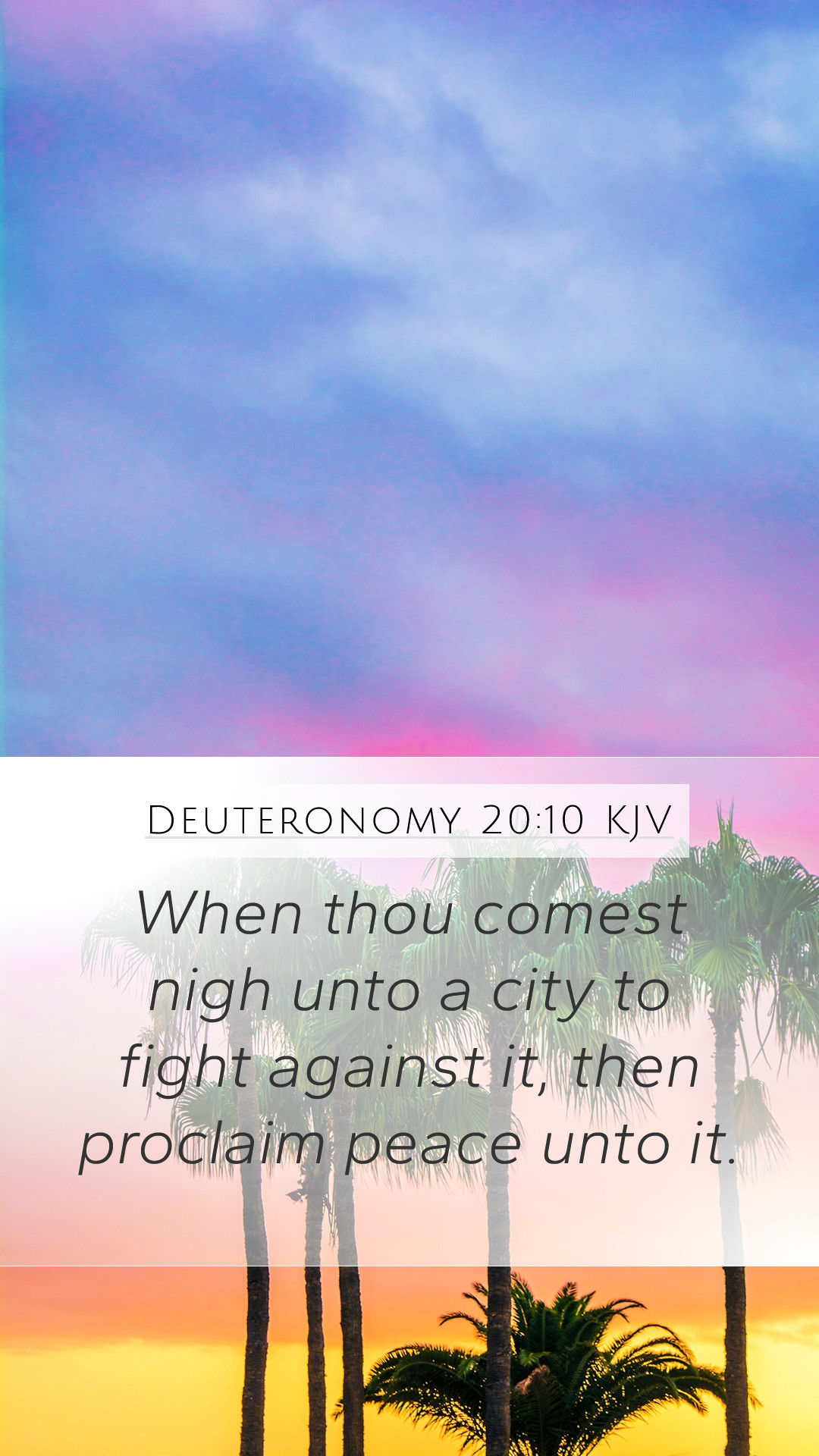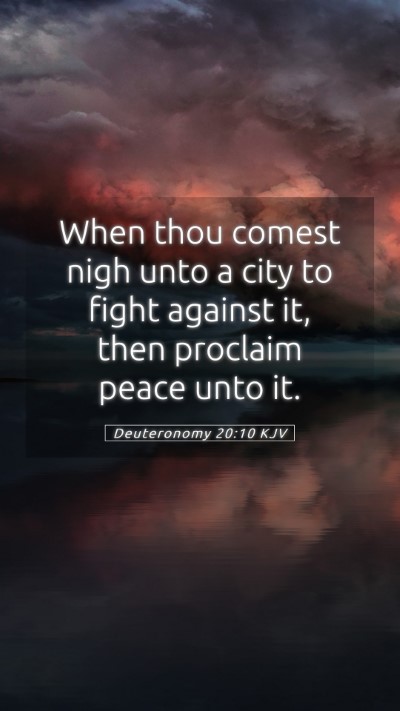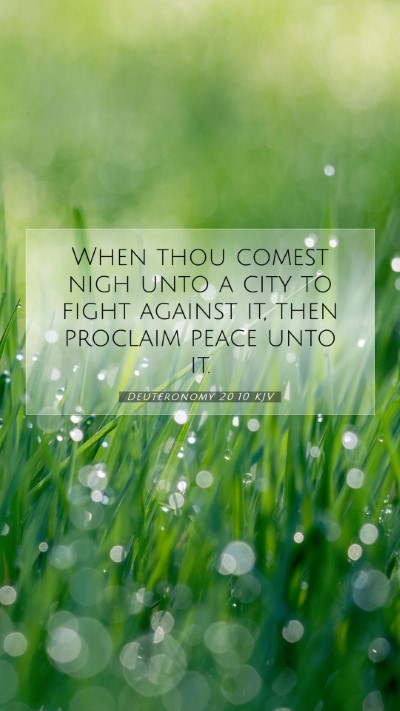Understanding Deuteronomy 20:10
Verse: "When you go to war against your enemies, and you see horses and chariots, and an army larger than your own, you shall not be afraid of them, for the Lord your God is with you, who brought you up out of the land of Egypt."
Bible Verse Meanings
The verse in Deuteronomy 20:10 speaks to the Israelite people in the context of warfare. It reassures them of God's presence and help in their battles, emphasizing a core theme of trust in God amidst fear and overwhelming odds. This command reflects God's covenantal relationship with Israel, reminding them that their strength is not from their own might but through faith in Him.
Bible Verse Interpretations
Commentaries from Matthew Henry, Albert Barnes, and Adam Clarke provide rich insights into this verse:
- Matthew Henry: Henry explains that this verse is a command to encourage the Israelites. God's promise of presence serves to bolster their confidence against formidable foes.
- Albert Barnes: Barnes highlights that this decree not only addresses fear in battle but also points to the broader spiritual truth that God fights for His people. He argues that understanding God's past deeds (e.g., delivering Israel from Egypt) fuels their trust in future conflicts.
- Adam Clarke: Clarke elaborates on the historical context of warfare in ancient Israel. He notes that the mention of "horses and chariots" suggests a powerful enemy, but God’s assurance provides the promise of victory based on divine assistance and not worldly resources.
Bible Verse Understanding
This verse serves as both a historical account and a timeless lesson about reliance on God. In practical application, it reminds readers that regardless of the challenges one faces, faith in God provides strength and protection.
Bible Verse Explanations
From a theological standpoint, the verse reinforces key themes in Scripture regarding divine support and fearlessness in the face of danger. It symbolizes God's sovereignty and readiness to intervene on behalf of His people.
Scripture Analysis
In analyzing this scripture, it is important to consider:
- The historical context of ancient Israel and their understanding of warfare.
- The significance of God's past deliverance as an assurance for future battles.
- The spiritual implications of fearing God rather than man.
Biblical Exegesis
Exegesis of this verse should include examining parallel passages that express similar sentiments about God's aid in times of war:
- Joshua 1:9: "Have I not commanded you? Be strong and courageous. Do not be frightened, and do not be dismayed, for the Lord your God is with you wherever you go."
- Psalms 27:1: "The Lord is my light and my salvation; whom shall I fear? The Lord is the stronghold of my life; of whom shall I be afraid?"
- Isaiah 41:10: "Fear not, for I am with you; be not dismayed, for I am your God; I will strengthen you, I will help you, I will uphold you with my righteous right hand."
Bible Study Insights
For those engaged in Bible study groups or online Bible study, Deuteronomy 20:10 can serve as a crucial text for discussing the themes of faith, courage, and divine assistance. Study tools might include commentaries, cross-references, and personal reflections.
Application to Daily Life
Understanding this verse's message encourages believers to confront their fears with faith, recognizing that God is present in all struggles. This can shape how one approaches challenges, fostering a mindset rooted in spiritual assurance rather than anxiety.
Cross References
Additional Bible verses related to the themes in Deuteronomy 20:10 include:
- Exodus 14:14: "The Lord will fight for you, and you have only to be silent."
- Romans 8:31: "What then shall we say to these things? If God is for us, who can be against us?"
- 2 Chronicles 20:15: "Thus says the Lord to you: 'Do not be afraid and do not be dismayed at this great horde, for the battle is not yours but God's.'"


